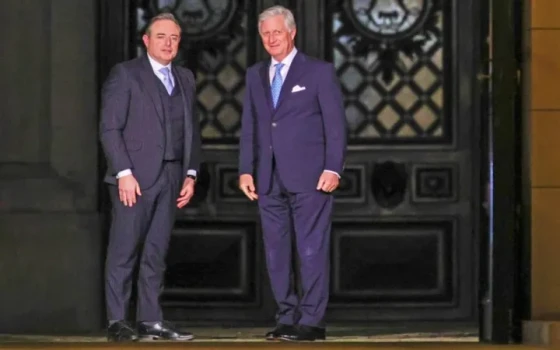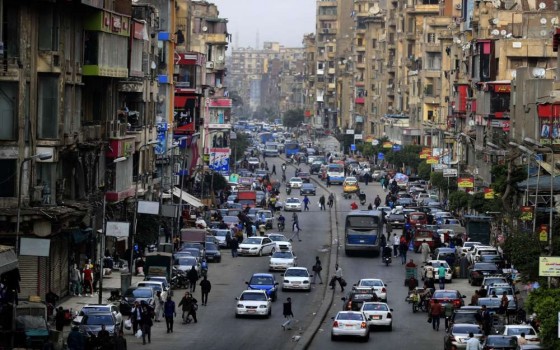
Agreement reached to form a new government in Belgium after eight months of negotiations .. The first prime minister from the Flemish Alliance, which supports the division of the country

- Europe and Arabs
- Saturday , 1 February 2025 9:48 AM GMT
Brussels: Europe and the Arabs
After months of negotiations, parties involved in negotiations for nearly eight months have reached an agreement on a federal government. It is clear that the leader of the New Flemish Alliance party N-VA, Bart De Wever, is the new prime minister. This Flemish political party was founded in 2001, and the latter wants to separate the Flanders region from the rest of Belgium. It is generally considered to be center-right. Belgium consists of three main regions: the first is the Flanders region near the border with the Netherlands, which speaks Flemish and is close to the Dutch language; the Walloon or Francophone region, which is close to the border with France and speaks French; and the Brussels-Capital Region, which speaks both languages and houses the government headquarters, parliament and other important institutions.
According to what was reported by the media in Brussels on Saturday morning, "With Matthias Diependaal taking over as Flemish Prime Minister and Bart De Wever as Federal Prime Minister, the new party leader will have a primarily coordinating role." The Speaker of the House of Representatives, Peter De Roover, said this Saturday on the De Ochtend programme on Radio 1.
Now that De Wever is prime minister, the party must look for a new party leader.
De Roover has been the head of the Flemish People's Movement for many years and, based on this history, is very fond of the Flemish cause. However, he sees no problem with the fact that the N-VA will now take over the leadership of the federal government. According to him, the coalition agreement includes sufficient institutional reforms. "The prime minister will be responsible for all matters that make the states more responsible for their policies," he said. "In addition, the Senate will be abolished." In some regions, an asymmetric policy will also be pursued in the north and south of the country. "This would be a step forward under the current circumstances. Of course, it is not the step I dreamed of," he added.
The negotiators who managed to conclude the coalition agreement stayed at the Royal Military Academy until five o'clock on Saturday morning to include the final points that were negotiated in the text that will serve as the basis.
The head of the Walloon Liberal Party (MR) Georges-Louis Bouchez spoke briefly and pointed out that the distribution of ministerial posts had not yet been made and that there was time "until Monday" to make decisions. He added that it was up to the future prime minister to present the agreement "in the coming hours".
The agreement is now due to be presented to party supporters at various party conferences. The Flemish Socialist Party (Vooruit) will open the matter at 5 p.m. on Saturday in Sint-Niklaas. The other four parties are scheduled to hold their conferences on Sunday. The N-VA and MR conferences will start at 10 a.m., in Antwerp and Brussels respectively, followed by the Walloon Christian Social Party (Les Engagés) which will meet in Liège, and the Flemish Christian Social Union (CD&V) will do the same in Waasmunster at 5.30 p.m. tomorrow.
A number of current ministers from the parties participating in the new government coalition will retain their ministerial posts, Belgian media reported.












No Comments Found